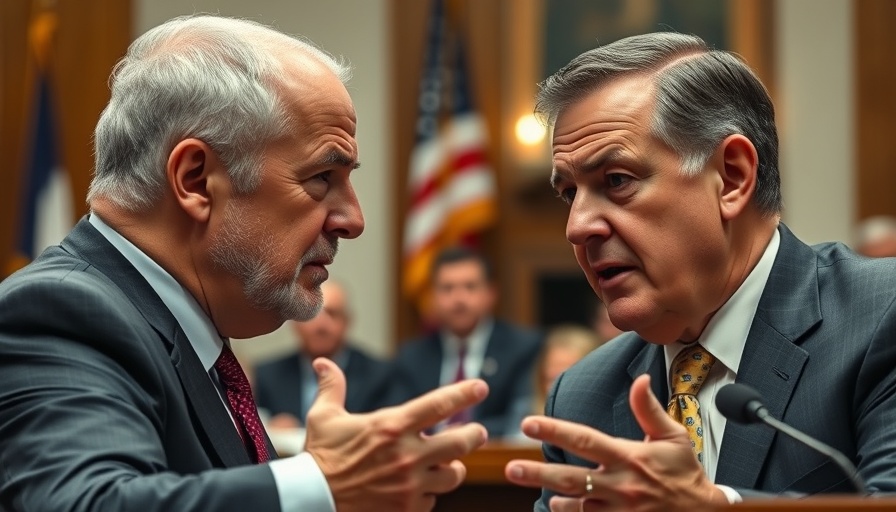
National Security Under Fire: What Happened in the Hearing?
In a highly charged Senate hearing on global security threats, top Senate Democrats expressed their frustrations with national security chiefs following a shocking report. This report exposed usage of an unsecured messaging app to coordinate bombing plans in Yemen, potentially breaching legal protocols. The fiery exchange showcased significant political tensions and has raised crucial questions about accountability within the national security apparatus.
Key Players and Their Responses: A Closer Look
At the heart of the interrogation was Tulsi Gabbard, the Director of National Intelligence (DNI). Senators, including Intelligence Committee Vice Chairman Mark Warner, pressed Gabbard for clarity regarding her involvement in a group chat that included key senior officials discussing Yemen's military actions. The exchange was fraught with tension, as Gabbard repeatedly avoided specific inquiries about the discussions, ultimately stating, "I don’t want to get into the specifics," while asserting that there was no classified information exchanged in the chat. Her reluctance to provide detailed answers left many senators visibly unimpressed.
Classified Information Debate: How it Impacts National Security
The discourse took a turn when Senator Angus King highlighted the seriousness of the situation by mentioning the operation plan details that were supposedly shared in the group text. His insistence that such information should be classified suggests a troubling gap in understanding about national security protocols. The implications of these claims extend beyond individual accountability; they reverberate through the foundational principles of how sensitive information is handled within U.S. governmental operations.
Broader Repercussions: Trust in National Security Leadership
This incident reflects deeper issues concerning public trust in national security leadership. As these national security chiefs are called to testify, their credibility is on the line, especially as they face scrutiny over their handling of sensitive matters. The ability of these leaders to maintain transparency and accountability could reshape public perception of the effectiveness and reliability of national security strategies.
Implications for Legal and Civil Rights: Why This Matters to Attorneys
For civil rights and immigration attorneys, the implications of this hearing are significant. How national security policies are developed and executed can directly impact immigrant communities, especially when discussions sidestep legal protocols. Attorneys must be prepared to advocate for clarity and transparency in policies that affect their clients’ rights. Ensuring that national security activities align with legal frameworks is critical not only for national interests but also for upholding civil liberties.
Moving Forward: Seeking Accountability
The events from this Senate hearing illuminate the potential pitfalls in national security management. Moving forward, it is essential that both Congress and the public hold national security leaders accountable. This step is necessary not only to restore public trust but to ensure that operational decisions are made based on sound intelligence and legal standards.
As civil rights attorneys navigate their complex roles, advocating for the principles of transparency and accountability in national security will be paramount. The discussions posed in this hearing are far from over, and can serve as a crucial point of engagement for legal professionals concerned with civil liberties.
 Add Row
Add Row  Add
Add 

 Add Row
Add Row  Add Element
Add Element 




Write A Comment